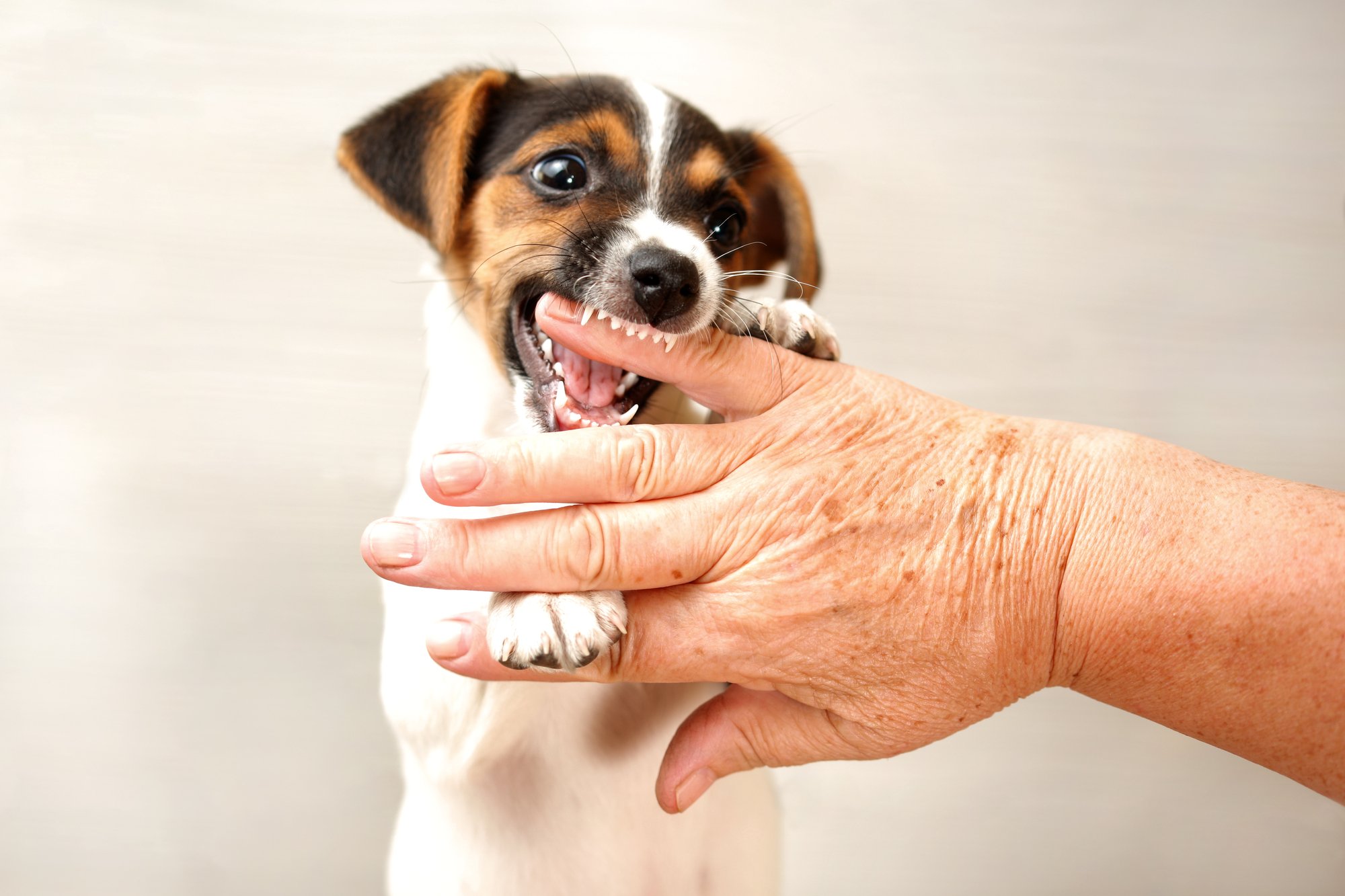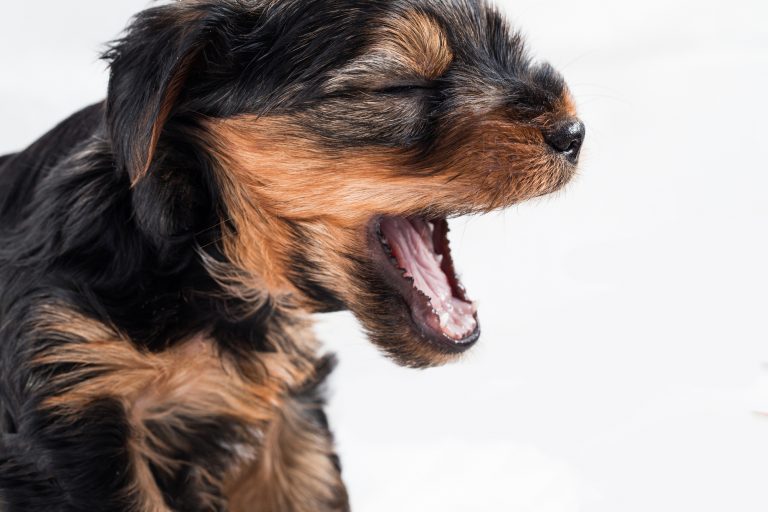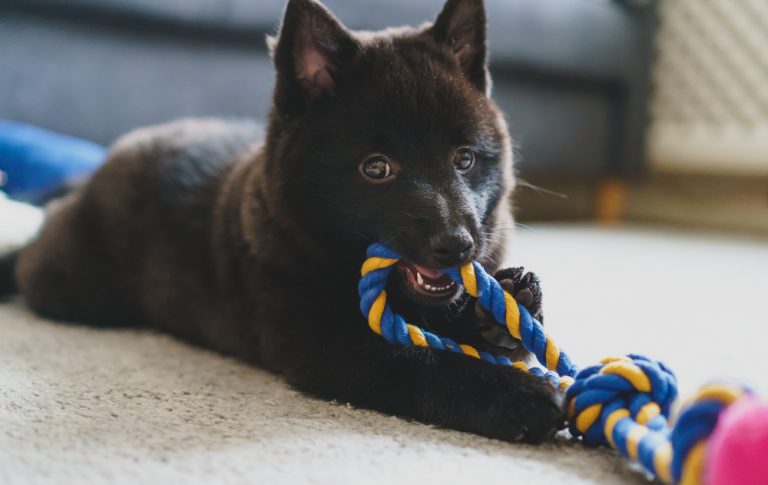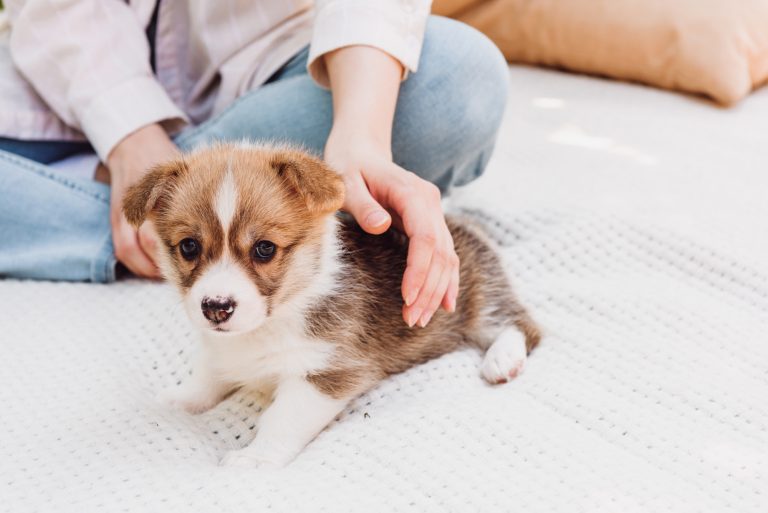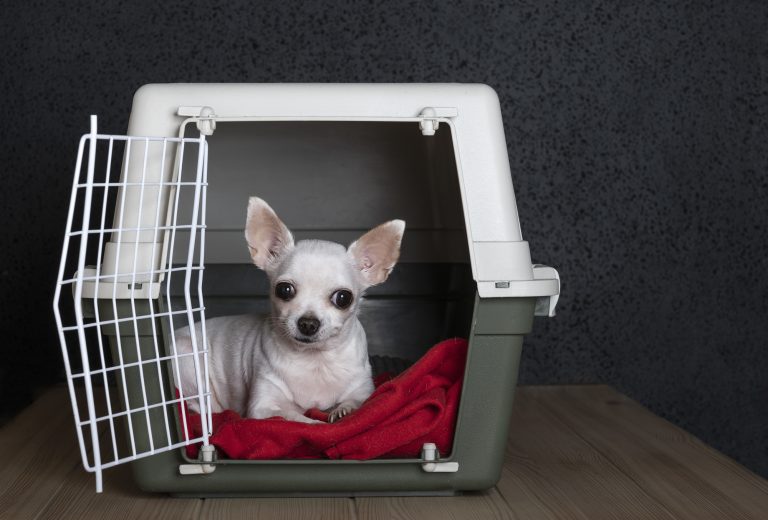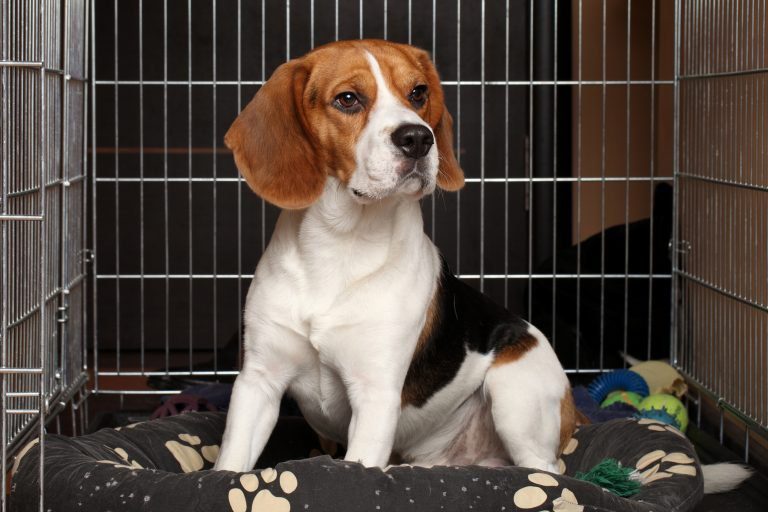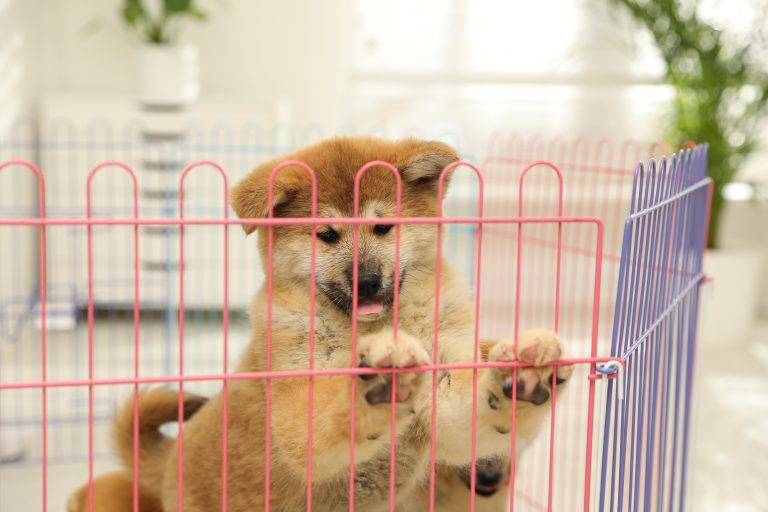How to Control Puppy Biting In 4 Easy Steps
On average, puppies have 28 baby teeth, which are eventually replaced by 42 permanent teeth once they become adults. That means, if you’ve just adopted a puppy, they’ve got roughly 28 sharp biters that can do some damage if they’re going through their mouthing or nipping phase.
While biting is bothersome, it’s essential to understand that biting is normal for puppies. It’s how they explore the world around them, and their tiny teeth are growing as they grow, which can be an uncomfortable experience that biting helps to soothe.
If you’re worried about whether your puppy’s biting is getting out of control or want to ensure that they don’t pick up any bad habits that’ll carry over into adulthood, then keep on reading for our tips on how to control puppy biting.
Why Do Puppies Bite?
As mentioned, puppies explore the world through their mouths. Biting, therefore, is a way for them to get to know their surroundings, including their human siblings or owners. However, there are numerous other reasons why puppies bite, including the fact that:
● Herding breeds are instinctually programmed to nip and chase fast-moving objects (your hand, a child, etc.) because they think they’re herding.
● Retriever breeds might not bite as hard, but they are instinctually programmed to pick things up with their mouths.
● Puppies go through a teething process similar to human babies. The teething process occurs between 14 to 30 weeks of age when they fall out and are replaced by their adult teeth.
● Puppies are playful! If you notice how they play with their pup siblings, you’ll see that they tend to bite as a way to gauge how intense the level of play can be.
While it’s usually nothing to worry about, puppy biting can be bothersome, especially if it continues and develops into aggression. First, we suggest learning more about how long puppy biting lasts to understand whether or not your puppy is exhibiting typical signs of nipping or if there is some sort of underlying issue at hand.
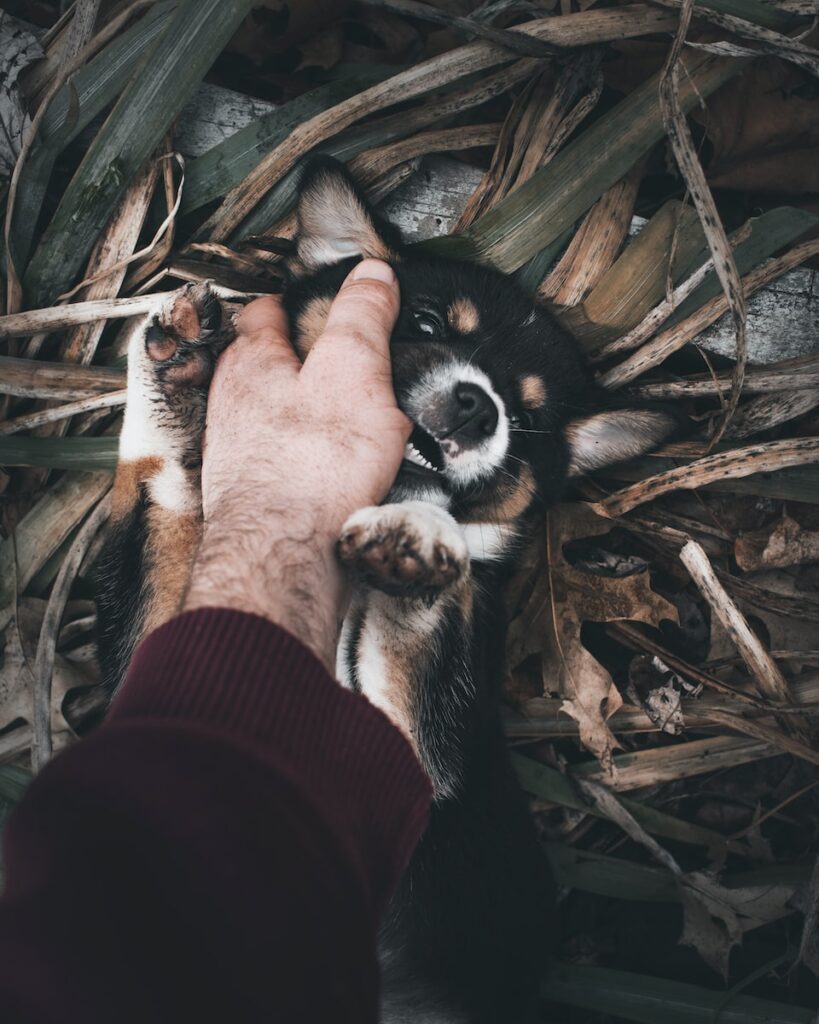

How Long Does Puppy Nipping Last?
One of the most common questions that new dog owners ask trainers and similar professionals is, “When do puppies stop biting?” The good news is that, yes, puppies do eventually stop biting, but only if you’re able to train them properly.
In general, most puppies grow out of this phase at around eight to ten months. However, if they’ve developed poor habits as a young pup, those can carry over into adulthood.
Usually, puppies learn bite inhibition from playing with their puppy siblings or other household dogs. If you watch them while they play, you’ll notice that they get pretty rough. This is normal, and it’s how they learn what’s okay to bite and how hard they’re able to bite. If they get too rough, one of their playmates will yelp, which will startle them. Next time, they’ll know not to bite so hard.
Puppies that are rehomed when they’re very young and haven’t had a chance to learn bite inhibition from their littermates might still tend to nip, especially if they are a breed that tends to have higher energy levels.
However, after around six months of age, they should no longer be biting like they were when they were little. So it’s important that you learn how to control puppy biting when your pup is still young.
When is Puppy Mouthing a Problem?
We suggest first following the steps outlined below to train your puppy not to bite or nip. If they don’t work, you might want to look for signs of aggression or contact a professional dog trainer; they’ll be able to help you take a closer look at your dog’s behaviour and analyze what the issue might be.
Puppy mouthing is only a real problem if they hurt someone or if the behaviour continues or worsens into adulthood. If your puppy hasn’t learned bite inhibition yet, here are the steps to follow.
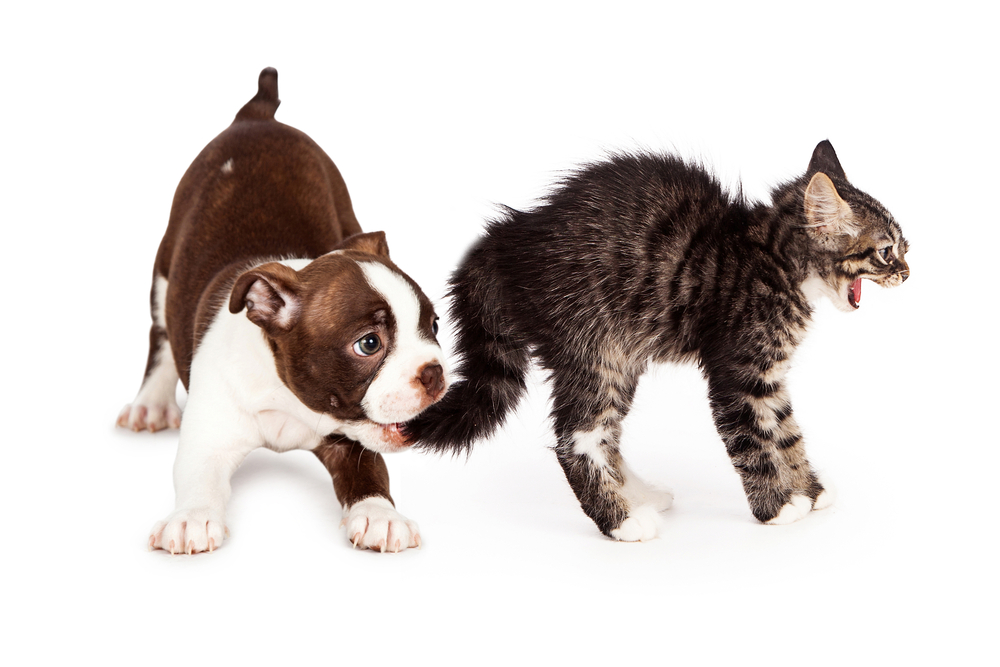

How to Control Puppy Biting: Teach Your Puppy Bite Inhibition
All puppies can be easily trained, especially when they are still young. If you find that your pup has an issue with using its teeth on you, it’s time to learn the following 4 steps on how to control puppy biting.
Tip #1: Redirect Their Energy & Attention
Because puppies use their mouths to explore the world, their bites are likely just their way of exploring new people or objects in the home. In this case, your first step should be to redirect their energy and attention. You can:
● Put them in a different room; often, the change of environment is enough to distract them
● Remove yourself from the situation, so they’re forced to find something else to play with (if you do this, just leave normally and don’t make a big fuss)
● Purchase a baby gate that will allow you to put them in a “time out” that doesn’t require them to be completely “alone”; the goal here is just to separate them from the people they’re biting to redirect their attention
● You can also try out one of these 40 activities that will entertain your puppy. Not only will these activities help to distract their attention away from biting, they will also keep your pup happy and help you to bond with your pet.
Tip #2: Use a Chew Toy to Deflect Biting
Puppies are naughty just like toddlers! Sometimes, they’re insistent on biting or nipping because they want to carry out their curiosity. If that’s the case, merely redirecting their attention and energy won’t work. Instead, you’ll need to introduce a chew toy to deflect the biting.

Not all puppies respond to every type of chew toy, which means that you’ll need to look for a toy that your pup truly loves. This can be anything from a durable stuffed animal to a toy specifically designed to help make teething easier on your puppy.
Whenever your puppy begins to bite, replace whatever they’re biting with their chew toy. It might take a few tries, but over time, they’ll learn that whatever they chew on, you’ll replace the toy; eventually, they won’t waste time, and they’ll go automatically to chew on the toy.
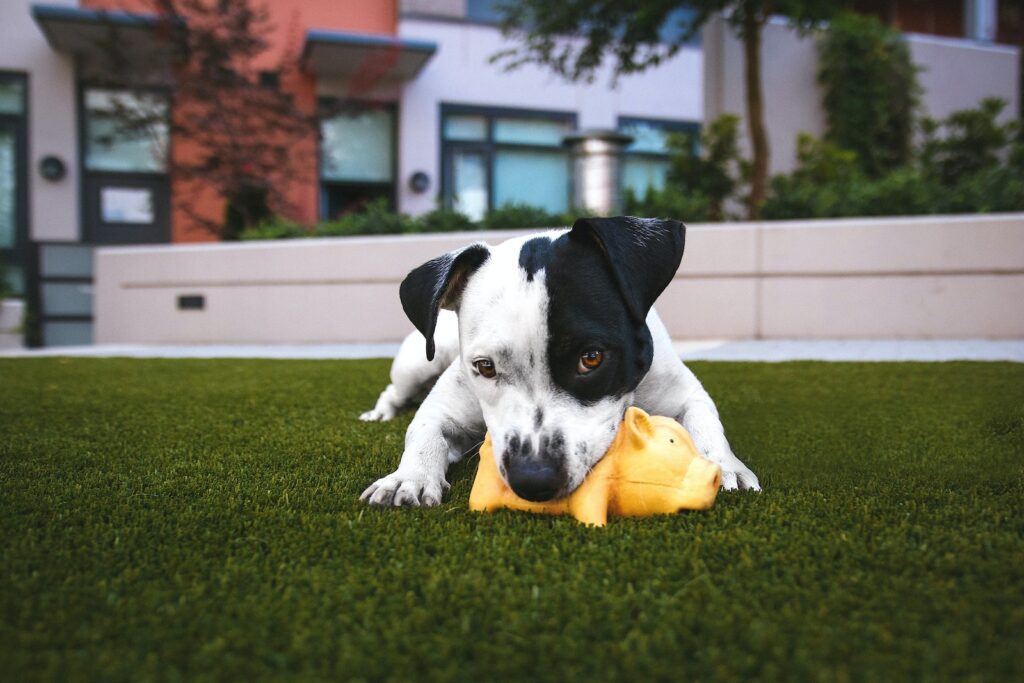

Tip #3: Take Them Outside
If you have the space to do so, it helps to take your puppy outside when they begin to bite or nip. Often, “bad” behaviour (again, puppy biting isn’t necessarily bad, just bothersome) is a sign of boredom or anxiety in puppies. Similarly to children, they might begin to act up if they have lots of pent up energy and nowhere to get it out.
So, next time your puppy starts mouthing, send them outside and let them run their energy off. If it helps, bring the chew toy out to let them chew on an approved toy instead of chewing outdoor furniture or anything else they find outside.
Tip #4: Resort to Time Outs
After trying to redirect your dog’s attention and replacing whatever they’re biting with a chew toy, you might find that your daring little puppy is still insistent on biting. If that’s the case, you’ll need to resort to time outs.
The goal here is to show them that whenever they bite, they lose their playtime privileges. When playing, it’s best to avoid playing too much with your hands and to avoid wagging your finger in their face. Don’t even give them the option to bite your hands or ankles or your attempts in learning how to control puppy biting will fail.
However, if they do succeed in biting you, you’ll need to let out a little yelp as their littermates might. Usually, this will cause the puppy to stop and reassess their behaviour. If they continue to bite hard, repeat the yelp a maximum of three times. If the behaviour continues, put them in time out.
The time out area should be an area with few distractions. You want them to have to sit alone for about 60 seconds at a time to let them calm down. However, you don’t want to put them in another room with distractions where they’ll be tempted to chew and bite on cables, furniture, or other household belongings.
For a time out session, you might want to consider putting your puppy in an enclosure such as these puppy playpens for about 60 seconds. You may want to continue talking to your puppy from outside and take note not to leave them there for too long.

Final Thoughts
The vast majority of puppies will grow out of biting well before they reach adulthood. If you’re working towards learning how to control puppy biting, you’re already halfway there (and it makes you a great dog owner)! If the behavior continues, try consulting a professional dog trainer.



